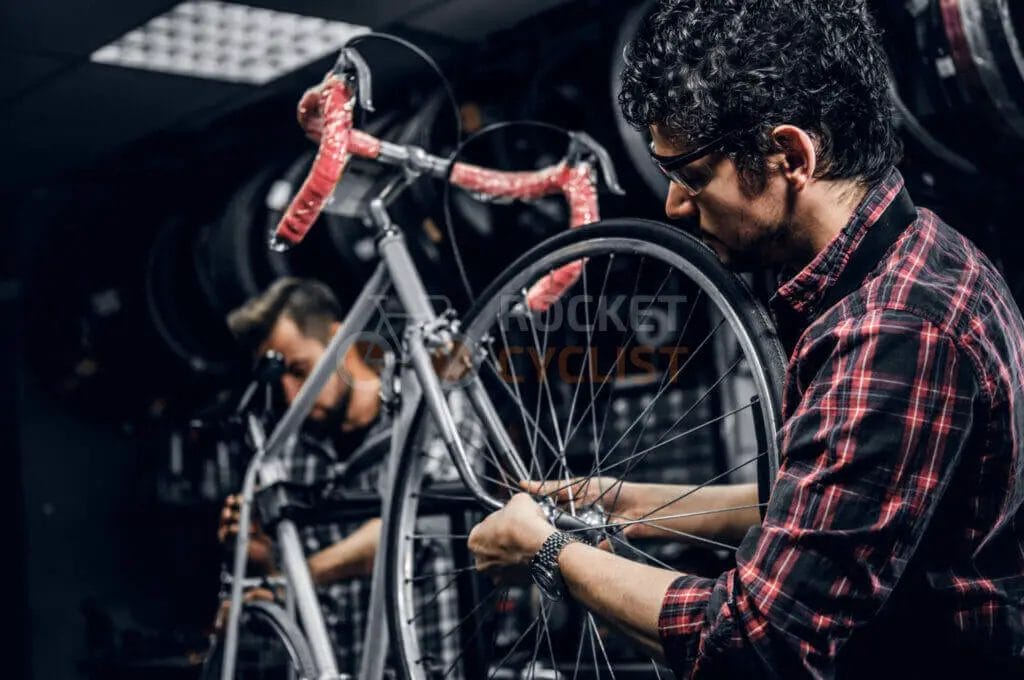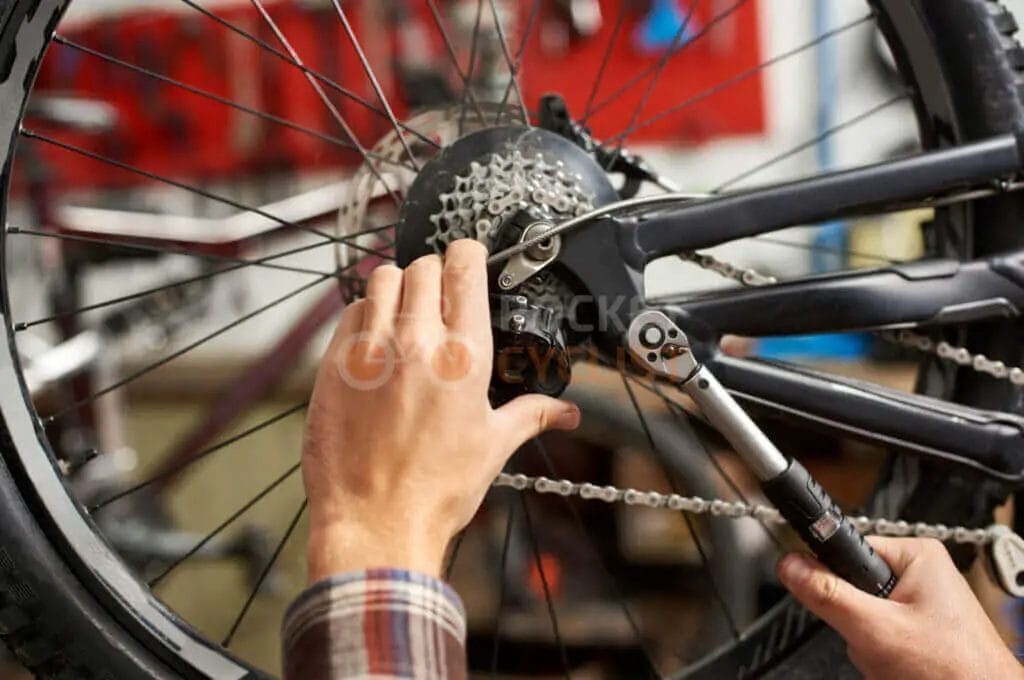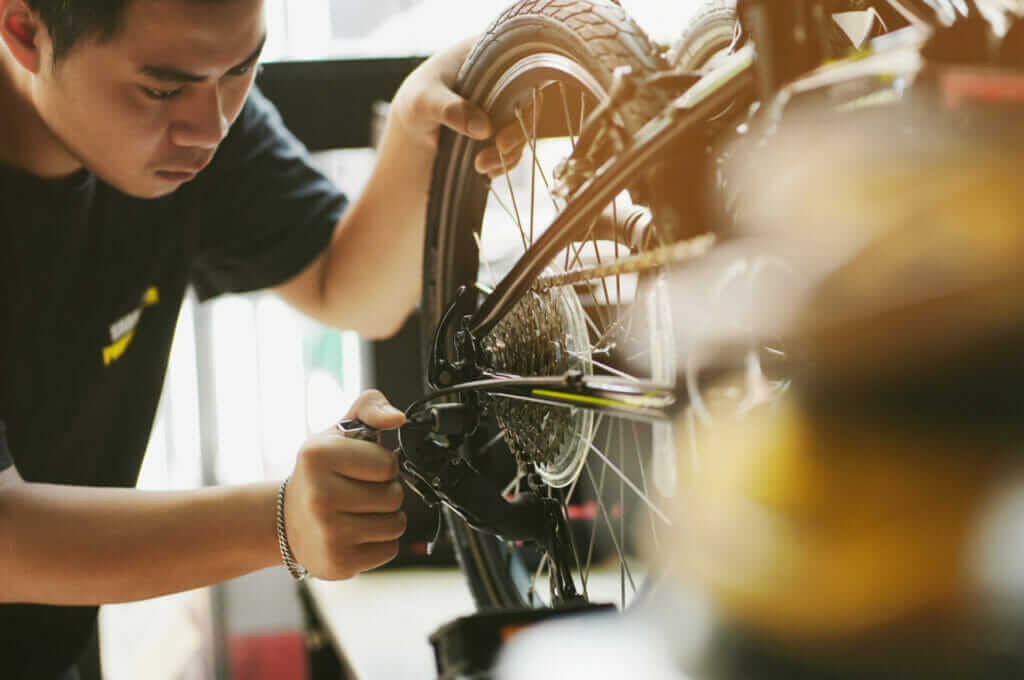Last Updated on February 28, 2024 by Vinson Lozano

You might often hear biking enthusiasts talk about the importance of regular bike tuning, but you may not fully grasp how critical this maintenance is. Proper tuning ensures your bike performs at its best, providing you with a safe and enjoyable ride. As you read further, you’ll understand why tuning your bike should be a part of your routine.
Understanding the importance of bike tuning
Bike tuning is like a health checkup for your bicycle. It involves adjusting, cleaning, and lubricating various components to ensure everything is in top working condition. Routine tunings help to prolong the life of your bike, reduce the wear and tear on its parts, and maintain its value. From the brakes to the gears, every element of your bike needs attention to ensure it continues to perform safely and efficiently.
The consequences of neglecting bike tuning
Let’s face it, if you neglect tuning your bike, you’re setting yourself up for a multitude of problems. Firstly, your safety is at risk. A bike with worn-out brakes or improperly aligned wheels can lead to accidents. Components might fail when you least expect it, causing not just a ruined ride but potentially severe injuries. Secondly, the overall performance of your bike will degrade. You’ll find yourself pedaling harder to achieve the same speed, or struggling with gears that refuse to shift smoothly. This creates an unpleasant and tiresome riding experience. Moreover, neglecting regular tune-ups will lead to higher repair costs in the long run. Worn parts can affect neighboring components, leading to a domino effect of damage and replacement needs. In short, without tuning, your bike’s lifespan will be significantly shortened, and you’ll be endangering your well-being each time you ride. Save yourself the headache and ensure regular bike tuning is a part of your biking routine.
Component Wear
When you neglect the routine maintenance of your bicycle, you are exposing every part of your beloved ride to premature wear. Just as you wouldn’t drive a car without regular oil changes, ignoring the need for bike tuning can lead to a cascade of mechanical issues. As a responsible cyclist, it’s critical you understand the ramifications of not keeping your bike in peak condition.

Effects of not tuning the gears regularly
If you fail to tune your gears regularly, you’ll start to notice a decline in your bike’s performance. Those smooth transitions between speeds will become a thing of the past—gears may slip, resist change, or make unpleasant noises. Over time, the chain and cogs can wear out unevenly, leading to the need for costly replacements. This not only affects your riding comfort but can also put unnecessary strain on the drivetrain, making your pedaling less efficient and your ride more laborious. To maintain a seamless riding experience, you must give your gears the attention they deserve.
Impacts of neglecting brake adjustments
Brake adjustments are not something to overlook. Neglecting them can be downright dangerous. Over time, brake pads wear down and cables stretch, reducing your ability to stop quickly and precisely when it matters most. This could potentially lead to accidents, especially in emergency situations where responsive braking is the difference between a close call and a collision. To ensure your safety and the safety of others on the road or trail, keeping your brakes properly tuned is absolutely crucial. Regular check-ups will allow you to ride with confidence, knowing your bike will respond as expected in every braking scenario.
Decreased Performance
How lack of tuning affects overall bike performance
Imagine the frustration of hopping onto your bike only to be met with stiff gears, a lagging pace, and an overall sense of drag. This is the reality when you skip regular bike tuning. You may think it’s just about gears and brakes, but the truth is, every component relies on the others. Neglecting tuning means your chain might not sit right on the cog, increasing resistance and stealing away your smooth ride. It results in jarring shifts and demanding more energy from you for each pedal stroke. Poorly tuned bikes also suffer in terms of efficiency and longevity, taking a toll on your performance and potentially shortening the life of your bike.

The influence of untuned suspension on ride quality
For those with mountain bikes or any ride with suspension, the impact of neglect can be glaringly apparent. An untuned suspension system fails to absorb shocks effectively, making every bump and dip in the trail a challenge. Your control and comfort on the bike suffer, which can lead to a decline in confidence as you ride. The added stress on other bike components, and indeed on your own body, is intense. A well-maintained suspension system is pivotal for a smooth and responsive ride and without regular tuning, you’re simply not getting the best out of your bike.
Safety Hazards
Risks associated with riding a poorly tuned bike
You might not give it much thought, but riding a bike that hasn’t been properly tuned poses significant risks. A bike that is out of tune can lead to erratic and unpredictable handling, making it challenging for you to control. It raises the risks of accidents caused by components failing at crucial moments during a ride. Additionally, if the brakes are not adjusted correctly, you may find yourself unable to stop in time which can be dangerous in busy traffic or on tricky descents. Always remember, your safety depends heavily on the condition of your bike.
The dangers of riding with loose or worn components
Loose or worn components are not just nuisances; they constitute real dangers. On a bike with loose parts, everything from steering to propulsion becomes risky. A loose handlebar, for example, could shift unexpectedly, throwing you off balance and into the path of harm. Similarly, a worn tire might blowout, jarring you from your bike with little warning. In the worst scenario, a critical component like a chain or pedal could detach or break, potentially causing severe accidents. It’s imperative to keep your bike finely tuned to ensure each part functions as designed for a safe ride.
Increased Maintenance Costs

How neglecting bike tuning can lead to expensive repairs
When you ignore the tuning of your bike, you’re setting yourself up for inflated maintenance costs down the road. It’s similar to skipping regular dentist appointments and ending up with a mouth full of expensive cavities. Likewise, if your bike is not regularly tuned, small issues like a slightly misaligned derailleur or a stretched cable, which are inexpensive to rectify, can escalate into major problems. For instance, a poorly adjusted brake that you neglect can wear out not just the brake pads but also the rims, resulting in a heftier replacement bill. Moreover, an unattended noisy bottom bracket could signal impending bearing failure, and leaving it unchecked could force a complete crankset replacement. It’s in your pocket’s best interest to give your two-wheeled companion the regular tuning it deserves.
The role of regular tuning in preventing major breakdowns
Regular bike tuning is analogous to getting regular check-ups for your health—they are essential in preventing catastrophic breakdowns. Think of your bike as a patient, and each tuning session as a check-up where potential issues are diagnosed early. By catching and addressing any wear and tear early on, you prevent the sort of damage that can lead to expensive and extensive repairs. Chain wear, for instance, when left unchecked, can accelerate the wear of the cassette and chainrings, turning what could be a simple chain replacement into a much costlier drivetrain overhaul. Similarly, keeping your wheels true helps to prevent spoke breakage and avoids the possibility of needing an entirely new wheel. Make regular tuning appointments a priority to ward off major problems and protect your wallet from the shock of unexpected repair bills.
Longevity and Durability

The impact of bike tuning on the lifespan of components
If you don’t tune your bike, you’re compromising the lifespan of its components. Imagine letting your bike run with a rusty chain or on underinflated tires; it’s not a question of if but when problems will arise. Neglect leads to increased friction and wear on vital parts. Components that could have lasted for years might only survive a few months. A chain that should glide smoothly may end up grinding away at the cassette. Spokes that could have been easily tightened during a tune-up might snap mid-ride. In short, regular tuning isn’t just maintenance; it’s a preservation strategy for each piece of your bike.
The benefits of regular maintenance in prolonging bike life
Regular bike maintenance is the unsung hero in the story of your bike’s life. Like a proper diet and exercise for the body, regular tune-ups ensure each ride is smooth and each part functions as intended. From greasing bearings to adjusting brake pads, these tasks might seem mundane but are crucial in forestalling premature wear. With each tune-up, you’re not only ensuring a safer ride but also investing in the longevity of the bike itself. Overlooking these small rituals can lead to a cycle of breakdowns and replacements that could have been easily avoided. It’s simple: Take care of your bike, and it will take care of you for miles to come.
Handling and Control
The relationship between bike tuning and handling
Imagine you’re on a ride, and your bike starts acting up – the steering feels vague, each turn seems like a gamble, and the ride is anything but smooth. This is what often happens when your bike isn’t tuned properly. Tuning your bike affects how it responds to your commands. Proper alignment of wheels, tensioned spokes, and an adequately adjusted headset all contribute to how well your bike handles. If these aspects are ignored, your bike’s responsiveness can significantly decline, making it difficult to handle, particularly in emergency maneuvers or challenging terrains. In essence, a well-tuned bike translates to predictable and sharp handling.
The importance of tuning for optimal control
When you maintain tight control over your bike, you’re ensuring your safety and comfort. Tuning plays an integral role in this control. Adjusting your brake systems ensures that they are neither too tight nor too slack, providing you with reliable stopping power when you need it most. Calibrating gear shifts results in a smooth transition, enabling you to adapt quickly to changing road conditions. Correct tire pressure optimizes grip and reduces the risk of skidding. Without these tune-up checks, you might find yourself struggling to control your bike, leading to unsafe riding conditions. So, take the time to tune your bike; it’s a small investment for a safety-critical return.
Types of Bike Tuning

Essential bike tuning practices and their benefits
Ignoring the essential aspects of bike tuning can lead to a plethora of issues that affect both performance and safety. Simple maintenance tasks such as maintaining proper tire pressure, securing all bolts and fasteners, and ensuring your braking system functions correctly are fundamental for a safe and enjoyable ride. When these basics are covered regularly, your bike not only performs better, it lasts longer. With the right tuning, you’ll experience smoother rides and increased confidence on your bike. You’ll also avoid the gradual wear and tear that can go unnoticed until it’s too late.
Advanced tuning techniques for specific bike types
For the passionate cyclist looking for that competitive edge, advanced tuning techniques are the next step. Whether you own a road bike, a mountain bike, or a BMX, there are specific tuning adjustments that can drastically improve your cycling experience. Upgrading components for better performance, optimizing suspension settings for varying terrains, and custom wheel building to match your riding style are just a few examples of how advanced tuning can cater to the specialized needs of different bike types. With each adjustment, you’re enhancing your bike’s potential and fine-tuning your ride to suit your specific demands, leaving nothing to chance when you’re pushing the limits.
Conclusion
The importance of regular bike tuning
Imagine the frustration of dealing with a preventable breakdown during a ride. Skipping regular bike tune-ups is a surefire way to find yourself stranded on the side of the road or trail. Without periodic adjustments, your performance degrades slowly, and the risks of malfunctions increase. This isn’t just about inconvenience; it can be a matter of safety. Essential components like brakes and gears require attention to maintain functionality. Proper tuning ensures that your ride is not only enjoyable but also that each cycling experience is safe. Overlooking the necessary upkeep could spell disaster in terms of both personal injury and costly repairs down the line.
Steps to take to ensure proper bike maintenance
To prevent the negative outcomes of an untuned bike, you need to be proactive about its maintenance. Create a checklist of essential tasks: check tire pressure, adjust brakes and gears, and lubricate the chain. Keep an eye out for signs of wear and tear, especially on brake pads and tires. If you’re not confident in performing these tasks yourself, don’t hesitate to bring your bike to a professional. They can provide a comprehensive tune-up and spot potential issues before they worsen. Regular maintenance doesn’t just prevent mechanical issues, it also extends the lifespan of your bike, ensuring that you get the most out of your investment. Remember, a well-tuned bike is a dependable companion on every journey.


